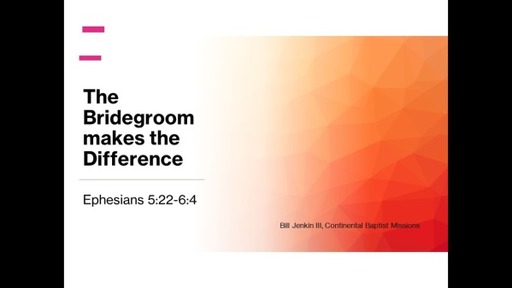Limited Liberties for Limitless Love

Intro:
It is not that those and many similar issues may not be important. But we cannot speak as authoritatively about them as we can such things as stealing, murder, slander, adultery, or covetousness—which Scripture plainly forbids as sinful.
Background:
I. Presuppositional Truths about Liberties (v.1-3)
(I)A. Possession of Knowledge
Some Corinthian believers assumed that knowledge was the true sign of spirituality. They did not understand that knowledge without love indicates a lack of knowledge.
(I)B. Priority to Love
II. Principles concerning Liberties
(II)A. Current Case concerning Liberties
Things sacrificed to idols is one word in Greek and can be translated simply as “idol sacrifices.” The sacrifices were food offerings, symbolically presented in worship to the god in whose temple they were given. The particular issue was that of eating food that had been offered in those sacrifices.
The Greeks and Romans were polytheistic, worshiping many gods. They had a god, or a group of gods, for every circumstance, every need, and every activity of any consequence. They had a god of war, a goddess of love, a god of travel, a goddess of justice, and on and on. They were also polydemonistic, believing in many evil spirits. They believed the air was filled with evil spirits of all sorts.
Giving food sacrifices, which were usually meat, was of great importance in regard to both of those beliefs. It was believed that the evil spirits were constantly trying to invade human beings and that the easiest way to do that was to attach themselves to food before it was eaten. The only way the spirits could be removed from food was through its being sacrificed to a god. The sacrifice therefore served two purposes; it gained the favor of the god and cleansed the meat from demonic contamination.
Idol offerings were divided into three parts. One part was burned on an altar as the sacrifice proper. The second part was given as payment to the priests who served at the temple, and the remaining part was kept by the offerer. Because of the large number of offerings, the priests were not able to eat all of their portion, and they sold in the marketplace what they did not need. That meat was highly valued because it was cleansed of evil spirits, and was thus the meat served at feasts and to guests.
The eating of meat offered to idols therefore had the same two associations for Christians, especially for those who had grown up in that religious atmosphere. The meat was associated with pagan gods and goddesses, having been part of an offering to them, and it was associated with the superstition that it had once been contaminated by evil spirits.
It was almost impossible for a believer who had any personal contact with Gentiles to avoid facing the question of eating idol sacrifices. Most social occasions, including weddings, involved pagan worship of some sort, and a great many of the festivities were held in temples. Idol food was always served. If a relative was getting married, or a long-time friend was giving a banquet, a Christian either had to make excuses for not attending—which he could not do indefinitely—or he had to eat food that he knew had been part of an idol offering.
Some sensitive Gentile believers refused to buy such meat because it brought back memories of their previous pagan lives or because those who saw them buy it might think they had reverted to paganism. Also many believers, both Gentile and Jewish, were reluctant to eat at the homes of pagan Gentiles—and even of some Christian Gentiles—because they were afraid of being served that meat. Such food could only be doubly unclean according to Jewish dietary law—from which many Jewish Christians found it hard to separate themselves.
On the other hand, some Christians were not bothered. To them, meat was meat. They knew pagan deities did not really exist and that evil spirits did not contaminate food. They were mature, well-grounded in God’s truth, and their consciences were clear in the matter.
(II)B. Conditions to our Liberties (v.9-13)
1. If it brings stumbling to our brothers (v.9)
The Corinthians who considered themselves more spiritual assumed that they had the right to do whatever they wanted without considering the effects of their actions upon other believers (see v. 12).
